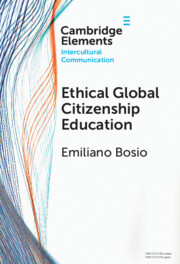Element contents
Ethical Global Citizenship Education
Published online by Cambridge University Press: 03 December 2024
Summary
- Type
- Element
- Information
- Online ISBN: 9781009326742Publisher: Cambridge University PressPrint publication: 12 December 2024

